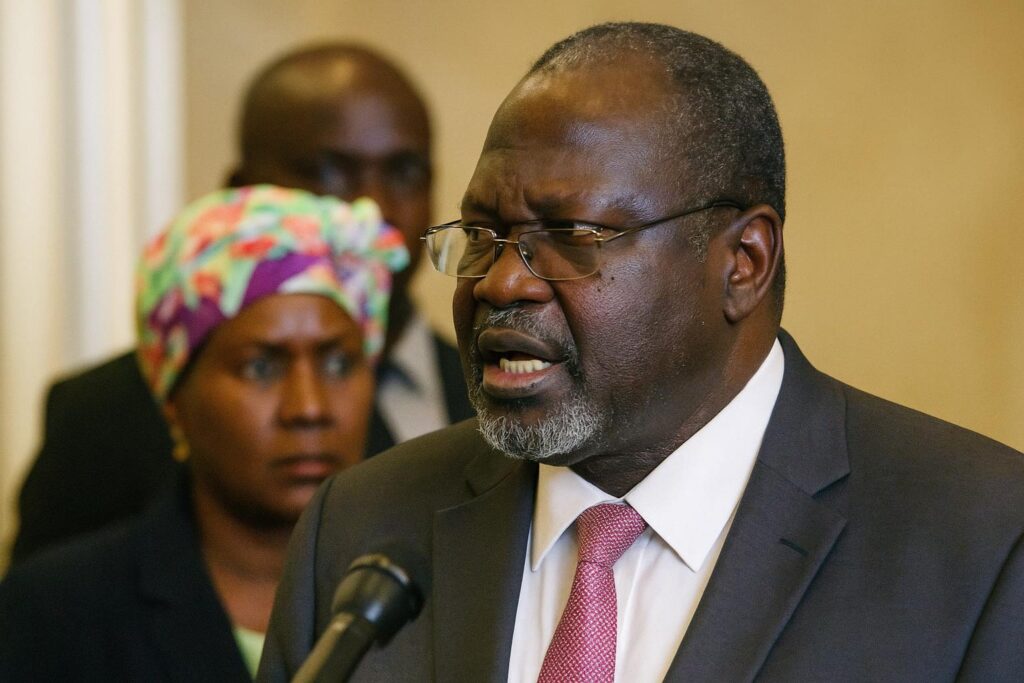Opposition Declares Government Illegitimate
South Sudan’s political arena entered uncharted territory Monday as the Sudan People’s Liberation Movement-in-Opposition officially branded the transitional administration “collapsed” and “illegitimate”, hours after First Vice-President Riek Machar, its embattled leader, was suspended and indicted.
Acting chairman Oyet Nathaniel Pierino declared the movement would seek “regime change” and called supporters to “report for National Service” in a statement released after a three-day virtual caucus.
Roots of the Political Crisis
The rift widened when government prosecutors linked Machar to a militia attack in Nasir, Unity State, allegations his allies dismiss as a politically staged “witch-hunt” that violates the 2018 Revitalized Agreement on the Resolution of the Conflict in South Sudan.
SPLM-IO insists Machar’s suspension freezes all political and security provisions of the peace deal, effectively gutting the very framework that birthed the coalition government three years ago.
Government Response and Silence
Juba’s leadership has yet to issue a formal rebuttal, but officials privately argue due process must run its course and caution against inflammatory rhetoric, according to senior sources consulted by reporters on condition of anonymity.
State media continue normal programming, signaling Kiir’s camp believes governmental institutions remain intact despite the opposition’s walkout threat.
Peace Deal on the Brink
International guarantors of the accord, including IGAD and the African Union, have not commented publicly, but diplomats fear momentum toward long-promised elections in late 2024 may stall if the coalition unravels.
A Western envoy in Juba told this magazine, “The clock is ticking; credible polls need consensus, logistics and security none of which exist without genuine partnership.”
Regional Stakes and Possible Paths
Renewed instability in South Sudan could ripple across the Nile basin, affecting humanitarian corridors into northern Uganda and western Ethiopia, already strained by refugee flows and climate shocks.
Analysts note that both camps still occupy the same capital, making a negotiated reset more likely than an immediate return to arms, yet warn that missteps now may erase fragile gains won since 2018.


